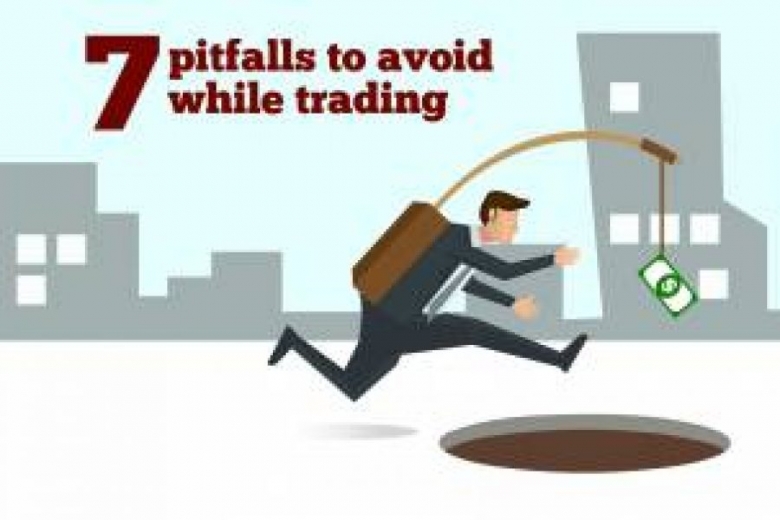
Talking about the digital marketplace, we are no strangers to what online trading is! Stock market trading has been transformed completely with virtual incarnations of currency, commodity, equities etc providing a global platform to investors across the globe. 1 out of every 781 people in the world is interested in online trading.
While online trading practically offers a gamut of advantages and opportunities, its cons are what I shall dig deeper into, given the accepted industry rule of a wash-out rate of 90% for new short-term traders.
Provided here is a list of common mistakes that traders make:
1. No predefined trading plan
Experienced traders do not get into a trade without a well-defined plan. They know their entry-exit points, the amount to be invested, the maximum they want to lose and so on. However, new traders trade without a pre-defined plan. Sometimes, even if they have a plan, they are more prone to abandoning it if things do not go their way. They might reverse their position altogether (for example, they would go short after initially buying a security if the price starts declining), only to end up getting washed out.
2. Consensus trading
Many times traders blindly follow the crowd and end up taking positions in a trade long after the smart money has moved out, thus resulting in losses. They may end up taking a buy position in securities that are already priced too high or may end up selling securities that have already plummeted and may be on the verge of reversal only to add to their losses.
3. Averaging up to redeem a losing position and letting losses mount
Some of the magnificent trading losses have occurred when traders kept adding to a losing position and were eventually forced to cut the entire position when the size of the loss made it unsustainable to hold the position any further. You may get lucky with averaging on occasions but most often you’re playing with a lot of risks. Holding on to a losing position in the hope that the trade will eventually work out, will only aggravate your losses. Moreover, with your funds blocked out here, you also miss out on another profitable opportunity.
4. Indiscipline
Getting overboard is also a detrimental factor. Fear and greed in trade is something that alters circumstances and the side of the see-saw that you are in. Trading too frequently can often erode your returns to the point where nice profits turn into significant losses. Also, traders are often too eager and impatient to jump into a trade as soon as an opportunity arises, without doing a proper research. Impatience to look at these matters could result in losses. While patience may not allow you to make a quick buck but it eventually pays off as it enables you to take a breather and wait for the right trading setup.
5. Revenge trading
Experiencing losses is very much a part of trading. Sadly, a lot of traders take losses personally and end up taking revenge trades as a reaction to their losses. A revenge trader will buy double down, average down, and dig themselves deeper into a position. The end result is they either get lucky and the stock rebounds or they get unlucky and experience massive losses. Trading based on luck and emotions is not trading, it’s gambling. Without any risk management strategy, it can bleed your account.
6. Failure to implement stop-loss orders
Stop-loss orders are critical for trading success, and failure to implement it is one of the worst mistakes a trader can make. Stop losses ensure that losses are capped before they become sizeable. Another common mistake is when a trader cancels a stop order on a losing position just prior to it being hit because he/she believes that the security price is now getting to a point where it will reverse and enable the trade to still be successful.
7. Over-leveraging
According to a well-known investment cliché, leverage is a double-edged sword, in a winning streak, it could be your best friend, but when the trend reverses, it becomes your greatest enemy. A lot of traders are misled into thinking that over-leveraging can make money quickly but forget that they can also end up losing all their money quickly. No matter how confident one is about their trades, markets can fail you at any time. Precaution can never be too expensive and traders shouldn’t buckle into abandoning risk management rules.
Therefore, there is no way to guarantee that a trade will return profits. One must keep in mind that winning without losing does not exist in the trading world. By understanding the above-mentioned pitfalls and how to avoid them, hopefully, you are more likely to find success in trading.
















